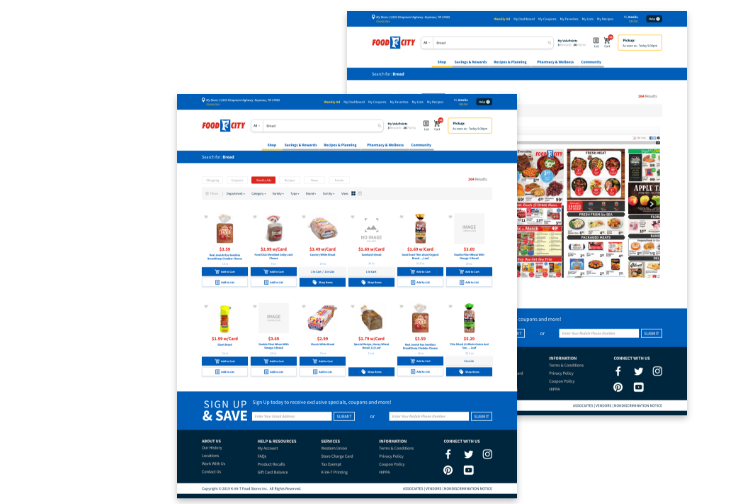
Wellness Club — Drug Side Effects and Drug Allergies: Know the Difference and Know the Safety Tips
Abingdon, VA. -
Sunday, Dec 1, 2024.
Written by: Rebecca Webb, PharmD Pharmacy Clinical Services Manager
In general, medications improve our lives. They help us manage chronic medical conditions, treat infections, and alleviate pain, among other things. Medicine can be lifesaving. However, along with intended outcomes there sometimes come unintended outcomes. Drug side effects and drug allergies are both types of adverse drug events that can cause varying degrees of harm or distress. Yet, they are distinct from one another. Oftentimes, people will mistake a drug side effect as an allergy to that medication. It is important to understand the difference between the two and know safety tips for both.
Drug side effect
• What is a drug side effect? When drugs are ingested, they can affect different parts of the body, beyond their intended target. A drug side effect is a potentially anticipated, but often undesirable and unpleasant effect related to a medication. Drug side effects can vary from minor to life-threatening.
Known drug side effects are listed in the medication package insert or drug monograph. It is important to note that manufacturers are required to list every side effect reported by every person taking the drug during the studies for its clinical trials. Listed side effects do not always occur, but they are a possibility. Moreover, not every drug side effect is known and listed, especially for newer drugs.
• What are some common drug side effects? Most common drug side effects are mild and include nausea, vomiting, constipation, diarrhea, drowsiness, rash, dry mouth, and headaches. However, each person’s capacity to tolerate a drug side effect is different.
Drug allergy
• What is a drug allergy? A drug allergy is a reaction of the body’s immune system to a normally harmless substance in a drug. The immune system overreacts and perceives the substance as a harmful, foreign invader.
Some people may develop an allergic reaction after taking a medication for the first time and others may not develop an allergic reaction until after multiple exposures to a medication. Also, drug allergies may fade over time.
The time it takes for a person to have an allergic reaction to a drug varies. Though, symptoms usually appear within minutes to an hour after taking the medication. Infrequently, a person may have a more delayed allergic reaction that develops slowly (e.g., in days or weeks).
• What are some common drug allergy symptoms? Drug allergy reactions can range from mild to life-threatening. The most common types of drug allergy symptoms are skin rashes or hives. Others can include itching, watery eyes, runny nose, fever, swelling, wheezing, or shortness of breath.
Anaphylaxis is a rare but life-threatening allergic reaction that can simultaneously affect two or more systems in the body. With anaphylaxis, a person can suddenly experience dizziness or lightheadedness; itching; a rash; swelling of the throat, tongue, or lips; difficulty swallowing; a cough; difficulty breathing; nausea; abdominal cramps; vomiting; diarrhea; a weak, fast pulse; a drop in blood pressure; confusion; seizures; or unconsciousness. Anaphylaxis can also lead to death if untreated.
• What are some common triggers for drug allergies? Any medication, prescription or non-prescription, can provoke a drug allergy. However, drug allergies are more likely to occur with certain medications. Penicillin is the most often reported drug allergy. Sulfa drugs (e.g., sulfonamide antibiotics), anticonvulsants (i.e., antiseizure medications), nonsteroidal anti-inflammatory drugs (i.e., NSAIDs), and chemotherapy drug allergies are also common.
Safety tips for drug side effects and drug allergies
— Ask your doctor and Food City Pharmacist for information about your medications, especially when starting a new prescription or over-the-counter (i.e., OTC) medication.
— Follow label directions and instructions from your doctor and your Food City Pharmacist, including on when and how to take your medications. Read any additional stickers attached to your prescription bottles or boxes.
— Talk to your doctor and your Food City Pharmacist about what to expect from your medications, including potential side effects and steps you can take to minimize them.
— If you develop a less serious, mild symptom you suspect may be drug-related, tell your doctor as soon as possible. Your doctor may adjust your medication regimen to reduce/eliminate the side effect or your doctor may consider a different treatment option.
— Keep a list of all your medications, prescription and non-prescription, and document any drug allergies you have along with the corresponding reactions/symptoms. Include how long after taking the medication the reaction/symptom occurs.
— Make sure your doctor, Food City Pharmacist, and all other health care providers you see are aware of your complete medication list and your drug allergy information.
— Know your risk of drug allergies. Do you have a personal or family history of drug allergies? Do you have a history of other allergies? Do you have certain medical conditions/infections commonly connected to allergic drug reactions?
— Avoid triggers for drug allergies and ask your Food City Pharmacist about related drugs you should avoid.
— Consider wearing a medical alert bracelet/necklace or keeping a laminated card in your purse/wallet that identifies your drug allergies/triggers.
— If you develop a severe/dangerous allergic reaction/side effect or experience life-threatening signs or symptoms of anaphylaxis after taking a medication, call 911 or go to the nearest emergency room immediately.
— If you have been prescribed epinephrine for your drug allergy, keep it on hand and use it as directed.
— An allergist can test whether you have a true drug allergy, especially for a suspected penicillin allergy. If you think you may have a drug allergy, talk with your health care provider.
References:
1. Drug Allergies – What to Look Out For. (2022, March). NIH News in Health. Retrieved from https://newsinhealth.nih.gov/2022/03/drug-allergies. Accessed November 24, 2024.
2. Drug allergy. Mayo Clinic website. https://www.mayoclinic.org/diseases-conditions/drug-allergy/symptoms-causes/syc-20371835. Accessed November 24, 2024.
3. Finding and Learning about Side Effects (adverse reactions). FDA website. Finding and Learning about Side Effects (adverse reactions) | FDA. Accessed November 24, 2024.












